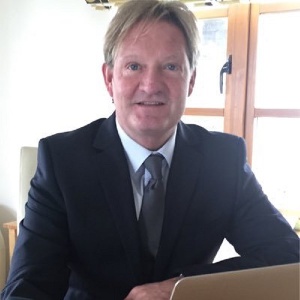 Staac Peter Birkett is a senior British lawyer
Staac Peter Birkett is a senior British lawyer
A senior British lawyer and judge, Staac Peter Birkett, has urged the Attorney General and Minister of Justice to ensure that the processes leading to the drafting of the bill for the establishment of the office of the Special Prosecutor are transparent.
He made the call yesterday in Accra while making a presentation at the opening ceremony of a two-day stakeholder meeting on the first draft bill for the establishment of the Office of the Special Prosecutor.
The stakeholder meeting, with support from the Embassy of China to Ghana, Office of the President, DFID, among others, seeks to provide the platform for public input and recommendation on the first draft of the Special Prosecutor Bill.
According to Lawyer Birkett, the person to be appointed as the Special Prosecutor must be seen to be independent from the interferences of government or any political party.
That, he said, was to help gain public confidence and trust in the operations of the special prosecutor when appointed, adding that the public in Ghana expects effective actions.
According to him, the decision on whether or not to prosecute should not be made on political basis or ground but rather on fundamental level.
He charged that the establishment of the office of the special prosecutor should be a “potent deterrence” against corruption not just in the present but also in the future.
“The bill must be fit for purpose; it must be fit for your present needs and it must be fit for your future needs,” he urged. “Anti-corruption must be the overall strategy. It must involve investigation and as well prevention,” he stated. He made it clear that the Ghanaian populace would not have any confidence in the special prosecutor if he or she is seen as a political appointee.
“The greater the transparency in the process, the greater the public confidence,” he said, adding that there was the need for the Attorney General’s Office to understudy the processes other countries went through in establishing their offices of special prosecutors.
In other jurisdictions, he said, the president appoints a special prosecutor and then does what he termed a “post consultation” while other countries rely on the parliamentary vetting process.
Working Relationship
The judge appealed for a clear definition in the bill on how the office of the special prosecutor shall relate to existing prosecuting agencies like the Economic and Organized Crime Office (EOCO) and the Police Service, among others.
That, he said, was because the plethora of investigating agencies has the potential of creating difficulties in the operations of the special prosecutor.
He proposed also that there must be a high degree of clarity as to what cases the special prosecutor can deal with.
Legal Practitioner, Carolyne Lamptey, said the special prosecutor, according to the draft bill, has the power to within seven days freeze any asset of a public official accused of having indulged in corrupt acts.
Thus, she urged that there must be a proper confiscation and asset management regime put in place by the state.
The Attorney General and Minister of Justice, Gloria Akuffo, said the establishment of the office of the special prosecutor is of immense importance to the government in the fight against corruption.
She lamented the canker of corruption, saying it undermines public trust in the operations of government and thereby encourages citizens to evade taxes.
According to her, although corruption is a global phenomenon and that its impact is pervasive in developing nations like Ghana.
She recounted that abuse of public procurement through what she termed as rampant sole-sourcing, payment of dubious judgment debts, were some of the worrying corruption issues in Ghana, adding that the burden of corruption falls more heavily on the poor whose basic human rights are further violated when they are forced to pay bribes to access basic education.
She acknowledged that until the monopoly of the Attorney General to initiate prosecution is broken, the fight against corruption will chalk piecemeal success.
The Attorney General said the Akufo-Addo government shares in this conclusion hence, the special prosecutor is a “top legislative priority” of the government.